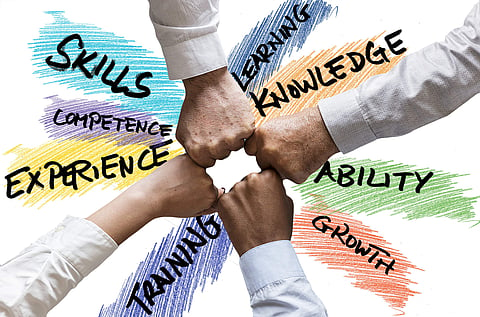

How is the rapid digital transformation changing the talent scenario in the industry? What technologies do students need to be ready for Industry 4.0?
Over the last decade, the automotive sector has embraced new technologies to create curated experiences that enhance customer satisfaction. The pandemic has accelerated digital adoption and increased mobile penetration in the remotest of areas. As companies transition to digitalisation in a big way, the industry is welcoming talent to deploy Artificial Intelligence (AI), Machine Learning and Internet of Things (IoT). Therefore, the potential manufacturing workforce must enhance their digital skillset and cognitive ability to adapt to these areas.
The disruption by COVID has been far-reaching. What are the new skill sets that are in high demand from the future workforce?
The COVID-19 pandemic has fast-tracked transformation in the workplace due to evolving marketplace and changing business models. It also has accelerated the push to adapt to digitisation, automation and a virtual workspace. We strongly believe that the shift to digital will drive further growth opportunities in the automotive industry. In terms of overall qualities, companies will look to hire candidates who showcase the mental agility to adapt to innovation, are fast learners and possess strong social and interpersonal skills. Last but not least, one of the critical business requirements will be the development of Emotional Intelligence (EI) across the workforce.
Do educational institutes need to recalibrate to meet the new-age job requirements?
Educational institutes are moving to a research-based curriculum and actively partnering with the industry to address the growing skill gap. This activity aims to help aspirants keep up with technological upgradation, shifting landscapes, and the unparalleled digital transformation. Organisations can also support the future workforce by enhancing the quality of skill training in the industry and by building relevance into the current skill development programmes. The alignment of curriculum and training programmes will be instrumental in creating a meaningful skilling ecosystem.
How has the learning approach changed with the evolving skillset scenario?
The pandemic saw the world of business change rapidly with evolving business models, faster adaption to technology and emerging room for new skillset development to build a future-ready workforce. The Institute of Quality and Leadership (IQL) at TVS Motor Company continuously evaluates the skill requirements for the workforce and accordingly designs relevant and engaging virtual training sessions by experts for essential and continual professional development. The company has also created a learning culture by onboarding academic partners who impart training, basis competency framework and functional skills.
Are you ready for the future of work and the future of hiring?
A global Human Capital Trends Survey globally indicates that one of the critical impact areas for HR is integrating automation in the workflow. For us, investment in digital technology has helped us create a highly connected work environment where employees enjoy mobility and secure access to the right tools to fulfil their roles with utmost speed and ease.
R AnandaKrishnan is Executive Vice President – Human Resources and Information Technology at TVS Motor Company
